Brandon Nunez opens the doors into the wrestling room at Columbia University's Dodge Physical Fitness Center in Upper Manhattan.
Everyone looks over.
At 5-foot-3 and just shy of 125 lbs, he isn't the biggest body, but he commands the room.
The room erupts with shouts.
"Ayyy!"
He's got a classic, stocky, wrestler's build. His well-defined trapezius muscles fill out his Rhode Island College wrestling t-shirt and his large calves are covered with a white athletic sleeve that runs down his left leg from underneath his orange gym shorts.
He's swarmed by the dozens of middle school and high school-age kids who are attending this week's wrestling clinic. He exchanges a handful of high-fives, fist bumps and daps from old friends.
Nunez is what the roughly 45,000 current Public School Athletic League athletes hope to become.
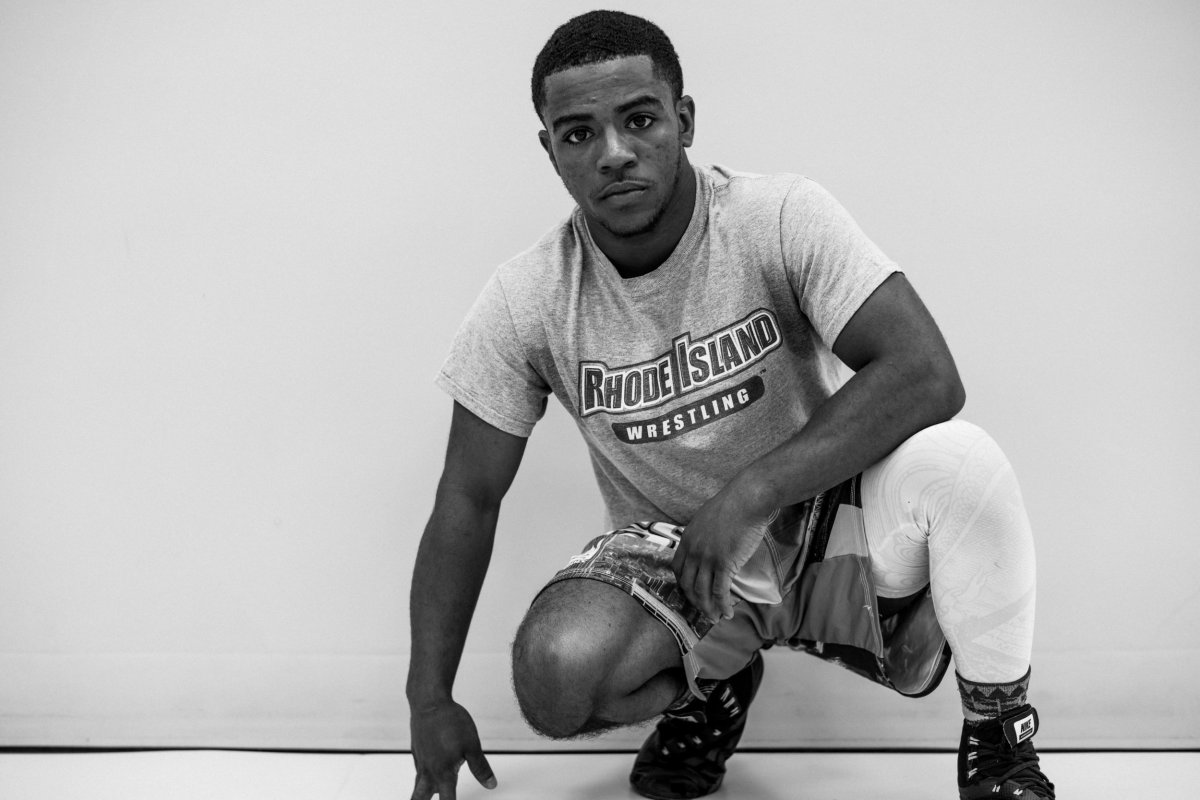
"Brandon Nunez is Mighty Mouse and there's no less than a few thousand kids that know who he is and want to be able to replicate what he's accomplished on his own," said Mike Torriero, founder of Gotham City Wrestling a New York City-based, hyperlocal wrestling website.
In 2017, Nunez became the first city kid to win a New York State Division I High School Wrestling title. At the state championships, Division I is the large school division, and many argue, the more competitive division. Prior to Nunez, the PSAL, New York City's governing body for public school athletics, had never claimed a Division I champ.
"It's significant for New York City, it's significant for the PSAL. It's significant for all the youth that are able to go ahead and see what a real superhero is," Torriero said.
Nunez comes from Far Rockaway, Queens, an area that's known for its high crime rate. In 2018, the neighborhood had 150 cases of felony assault, 97 robberies, eight shootings and two murders.
"Where I live at, there's a lot of people going to jail, I had friends going to jail, people getting shot, killed," Nunez said of his neighborhood. He grew up with just his mother on Beach 59th Street at an affordable housing complex formerly known as Ocean View. The community, which has long battled with high poverty, was further devastated after Superstorm Sandy in 2013.
According to a 2018 report by the Office of the New York State Comptroller, The Rockaways had the 13th-lowest median household income among all 55 of New York City's neighborhoods and the second-lowest in Queens.
"Where I come from, I was always set up for failure," Nunez continued. "There's not too many people that make it out, that goes to college."
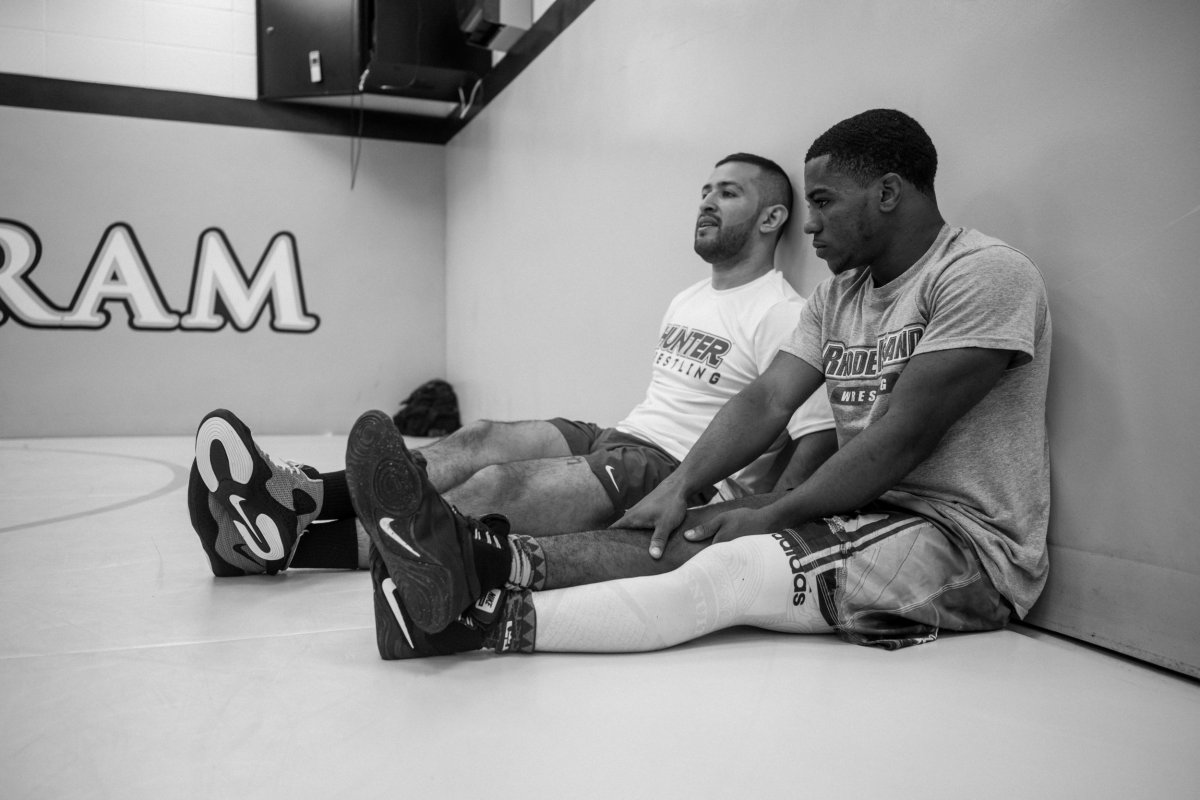
Nunez wrestles at the 125lb. weight class for Rhode Island College, which competes in NCAA Division III. He credits his time spent on the mat, through youth wrestling program Beat the Streets, as the reason for his success.
"I really thank Beat the Streets, for keeping me out of that environment and helping me see a better way of life," he said.
The Impact Of Wrestling
Before Gotham City Wrestling, Torriero was the Program Director for Beat the Streets, which was founded as a non-profit organization in 2005.
"We didn't have any state place winners, no state champions, no all-Americans, no college wrestlers a decade ago." Torriero said, adding that the upswing in talent from the five boroughs is due in large part to the work of Beat the Streets.
Before he started wrestling in middle school, Nunez got reported at school several times for fighting. His mother, who worked two jobs would often have to leave early to come pick him up from the principal's office.
"She would cry because she thought she would lose her job, so after that I was like alright I don't want to have my mom crying and make her sad, like I'm not doing good things for her and she's sacrificing all these things for me," he said.
Nunez said things began to change in high school when he made real strides in wrestling. His disciplinary issues decreased and his wrestling improved rapidly. "I started seeing my mother actually smile and have something to be proud of her son about. So, that just pushed me to continue to wrestle," he said.
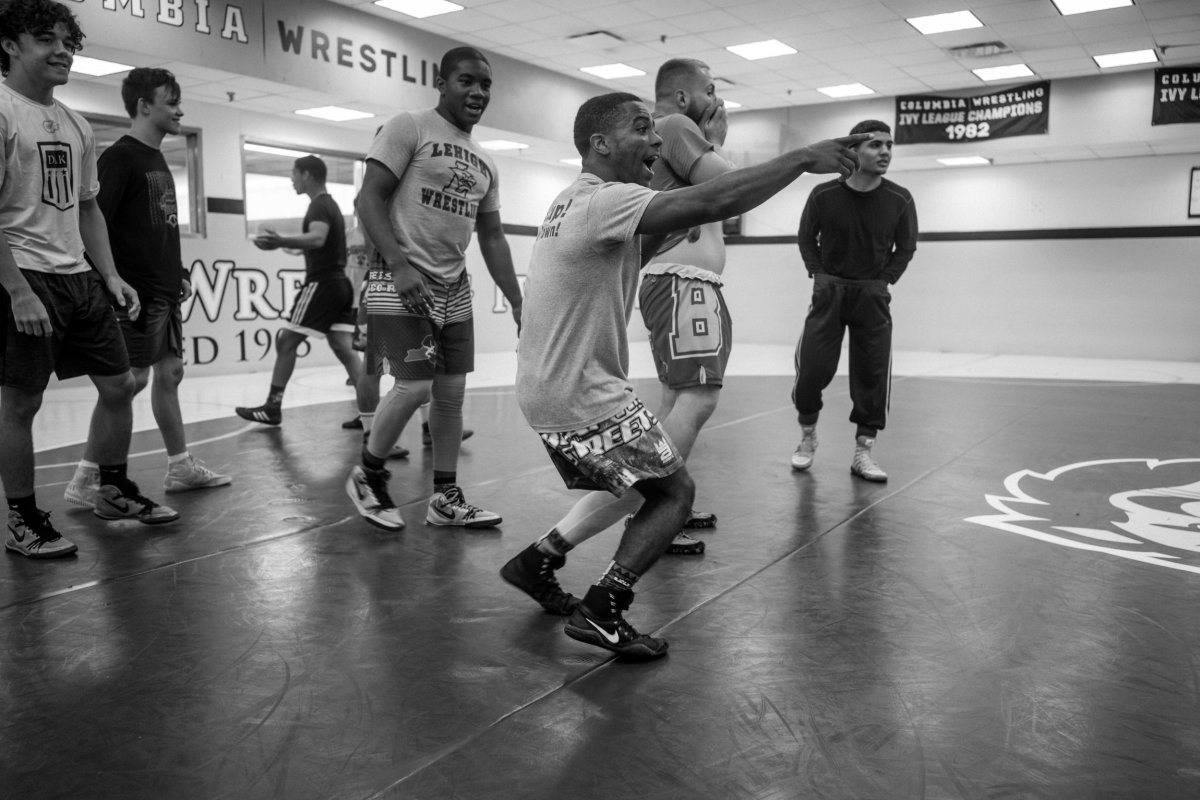
There are many within Beat the Streets with stories like Nunez: youth who found an outlet through wrestling, a community that supported student-athletes to achieve success on and off the mat.
But wrestling has not been a mainstay of New York City athletics and part of the reason for the lack of success was that there was no solid foundation laid to build momentum on.
"New York City has the greatest athletes in the world, but the [wrestling] culture hasn't really been there. There hasn't been a coach or a culture built until Beat the Streets started in 2005, and it doesn't happen overnight," said Jesse Jantzen, Vice-Chair of Beat the Streets.
"New York City is phenomenal at basketball," said MarcAntoni Macias, Head Wrestling Coach at Hunter College and former Beat the Streets wrestling coach. "You just don't have those blue collar type of families that you have in the midwest, and in Pennsylvania, in Jersey and in parts of California."
"If you see in most of the projects in where we growing up at, there's a basketball court in almost every project," Nunez pointed out. "You watching basketball. Those are the role models, you following in those footsteps. So when I started wrestling, I looked at coach [Macias]. That was my role model. I wanted to follow in his footsteps--go to college and wrestle."
Jantzen said that Beat the Streets strives to fill that vacuum for youth who aren't playing basketball, and need an affordable sports outlet.
"You need a sport that works in that environment, if you're trying to appeal to the broader five boroughs and the kids." Jantzen continued, "Part of the mission for Beat the Streets is to create that culture through the Beat the Streets brand."
"Our vision is to do this thing we're calling a wrestler's education, which is learning lessons that are going to prepare you for the rest of your life in work, family and all these responsibilities you will have," Jantzen said of the organization.
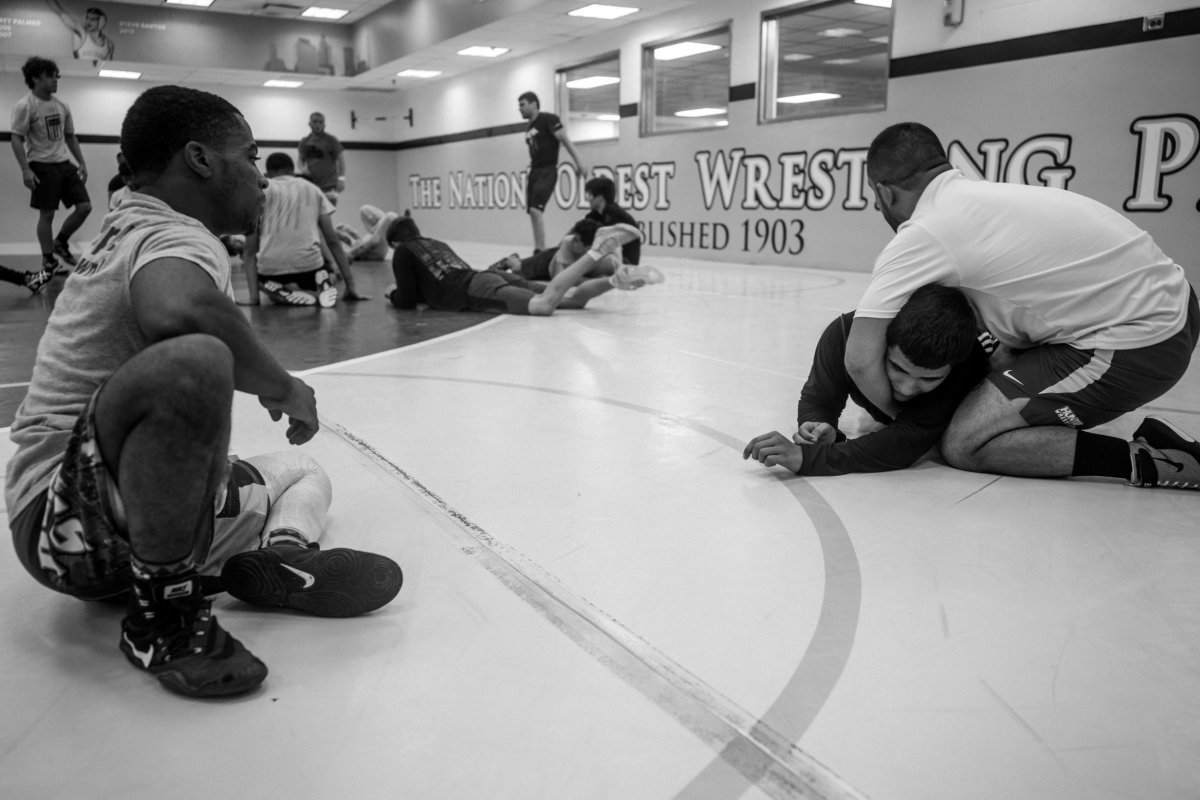
What started as a single middle school program, has grown into an organization that fosters the development of over 3,000 student-athletes who compete for wrestling programs all over the city.
The organization now has encouraged the development of independent chapters in several cities around the country, including Los Angeles, Chicago and Baltimore.
Jantzen, who was a four-time New York state champion in high school, a National Champion at Harvard and a World Champion at the 2005 University World Championships, in Turkey, says wrestling is a tremendous catalyst for impacting lives for the better.
"Even if you could wrestle for a week, a month, it's going to affect your life. And it'll affect your life in a positive way," Jantzen said.
Wrestling's Growth In New York City And Beyond
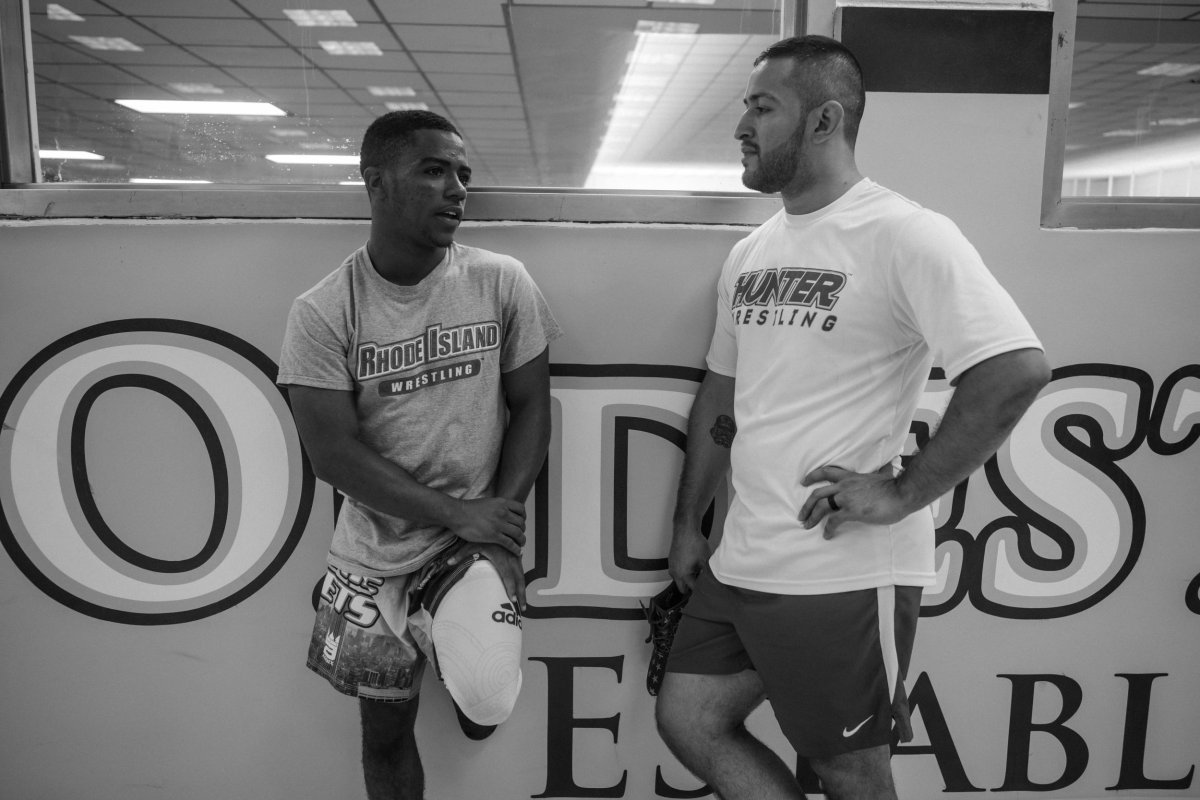
The continued growth and success of Beat the Streets has ushered in the formation of other groups in the youth wrestling space.
"Gotham City Wrestling was a way to try to connect all the good people all the good energy that was going on for wrestling," Torriero said of his company, adding "For the kids to be able to get on this website and see some rankings, let them know that they were being recognized for their good effort."
Torriero said he hopes to be able to transform the platform into the go-to medium for all things New York City wrestling: "The stories are just magnificent. The type of athletes that we get are so motivated and so driven. I hope Gotham City Wrestling continues to grow with New York City wrestling and it becomes or stays the place where people will go to get all the happenings."
The Harlem Jets organization, which also began in 2005 as a football and cheerleading program, now runs a wrestling team headed by Eric Palmer.
"The Harlem Jets mission is all about youth and their development from five, six years old all the way up through high school and matriculating on through college. It's all about their wellness, their social-emotional, along with the wrestling side," Palmer said. "It's really everything there that supports the children and their efforts to be successful individuals."
While Torriero and Palmer use wrestling as their tool in fostering youth development, they agree the most important element of development is the dedication and commitment to an extracurricular activity.
"It doesn't matter what the vehicle is, whether it's art or a competitive sport, or dance, it's good to see a child, girl, boy to find their passion in something that they can focus in on and spend positive energy and not have the negative." Torriero said.
"Wrestling teaches you to enjoy your life," Palmer asserted, "Enjoy the journey and embrace it along the way. It's not about the results in the end. It's about the journey you're going on and how you're dealing with it."
"We want to create great men and women that go on to do great things with their families, husbands and wives, give back," Jantzen added, "I think wrestling just prepares you so well for those things and that's literally the whole point."
Back in the wrestling room, Nunez drills with his former coach and mentor MarcAntoni Macias. The two alternate between drilling takedowns, wrestling live goes, and catching up, swapping old stories.
The others in the room peak over at them, stealing looks as they practice technique taught at this week's clinic. In their eyes, Nunez represents what they might achieve.
"I say wrestling and Beat the Streets saved my life, all that work that I came [sic] in made me into the man I am today," Nunez reflected, "So if it wasn't for Beat the Streets, and I'm serious I don't know where I would be."
Uncommon Knowledge
Newsweek is committed to challenging conventional wisdom and finding connections in the search for common ground.
Newsweek is committed to challenging conventional wisdom and finding connections in the search for common ground.
About the writer
To read how Newsweek uses AI as a newsroom tool, Click here.








